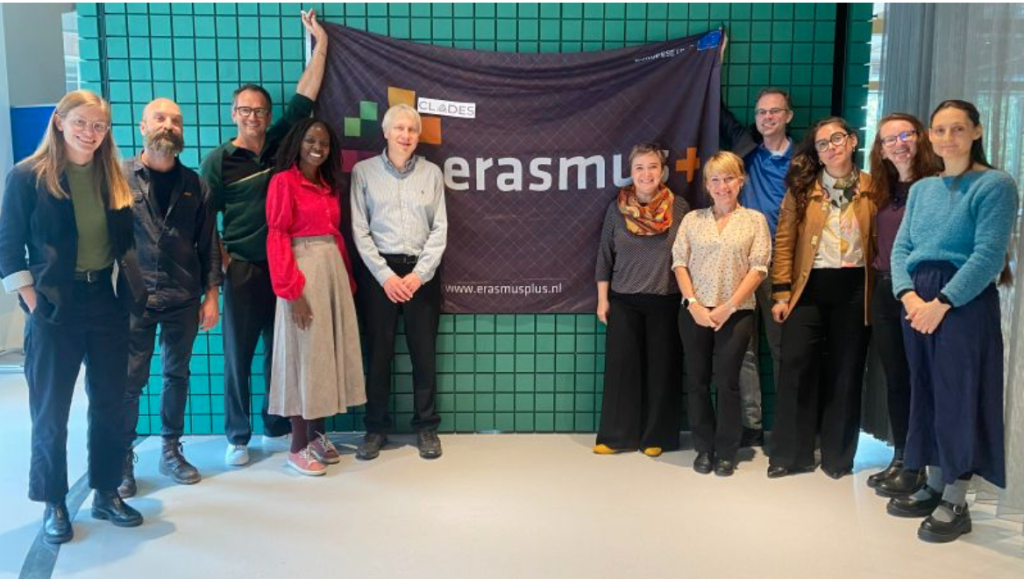
CLADES is an Erasmus+ funded project to increase civic engagement and sustainability literacy through Critical Language Awareness (CLA).
Grant Agreement number: 2024-1-NL01-KA220-HED-000249129

CLADES aims to increase civic engagement and sustainability literacy through the introduction and education of Critical Language Awareness (CLA). The project runs between 07/10/2024- 10/10/2027.
Main objectives
– To develop understanding of language’s societal impact, targeting different educational contexts.
– To enhance analytical skills for critical language evaluation as a means to increase media and visual literacy and critical thinking.
– To promote the use of one’s own voice and ethical communication to foster positive societal change.

The main goal of the project is to help students and their educators to develop an interest in civic engagement by raising their awareness of language and visual communication. Defined as a competency, critical language awareness encompasses an understanding of how language functions in social contexts, the ability to critically analyse language use, and the awareness of language’s power in shaping thought, identity, and social structures. The three dimensions of CLA as a competency—knowledge, skill, and behaviour—serve as the foundation for our project’s general objectives.
1. Develop knowledge of language as social practice
This objective is to deepen the participants’ knowledge of how language operates within various social contexts, influencing and reflecting cultural and societal norms. The outcome of this work will be twofold: first, the analysis of texts and stories from the participants themselves as well as sources such as influential leaders, Indigenous voices and stories from across the world; and second, educational resources that train participants to notice language as a social practice. This directly aligns with the strategic priority of civic engagement, because the result is participants’ understanding of the role of language in constructing social realities.
2. Enhance analytical thinking skills
The second objective focuses on developing specific skills in analytical thinking in identifying (own) bias, and understanding persuasive or manipulative strategies, exclusionary language, the ecological impact of language, and the like. By gaining an awareness of, and the ability to comment on the mechanics and minute details of language use, participants will be empowered to actively engage with and critique the language encountered in media, academic and professional contexts, and everyday discourse. The primary expected result is a set of freely available resources and an online course “CLA for Educators” through which those in higher education can help students develop a ‘noticing’ attitude and critical analytical skills.
3. Enable the use of ‘own voice’ responsibly. This involves fostering a sense of agency and responsibility towards using language ethically and effectively, and a realisation of how language can be used to promote positive social change. This objective focuses on CLA’s potential to improve both communicative competence and the knowledge necessary to find new discourses. Through the materials developed for students, the university course and the online course “Econarrative,” learners will be empowered to question the stories that underpin our current unsustainable civilisation and search for inspirational new stories to live by to help build a more sustainable world. This objective directly aligns with the call’s priority to enhance transferable, forward-looking skills. Expected Result: Improved communication skills, an increased sense of agency to use them, and the ability to use them responsibly.
Interested?
Check out our events or get in touch: euclades@rug.nl

